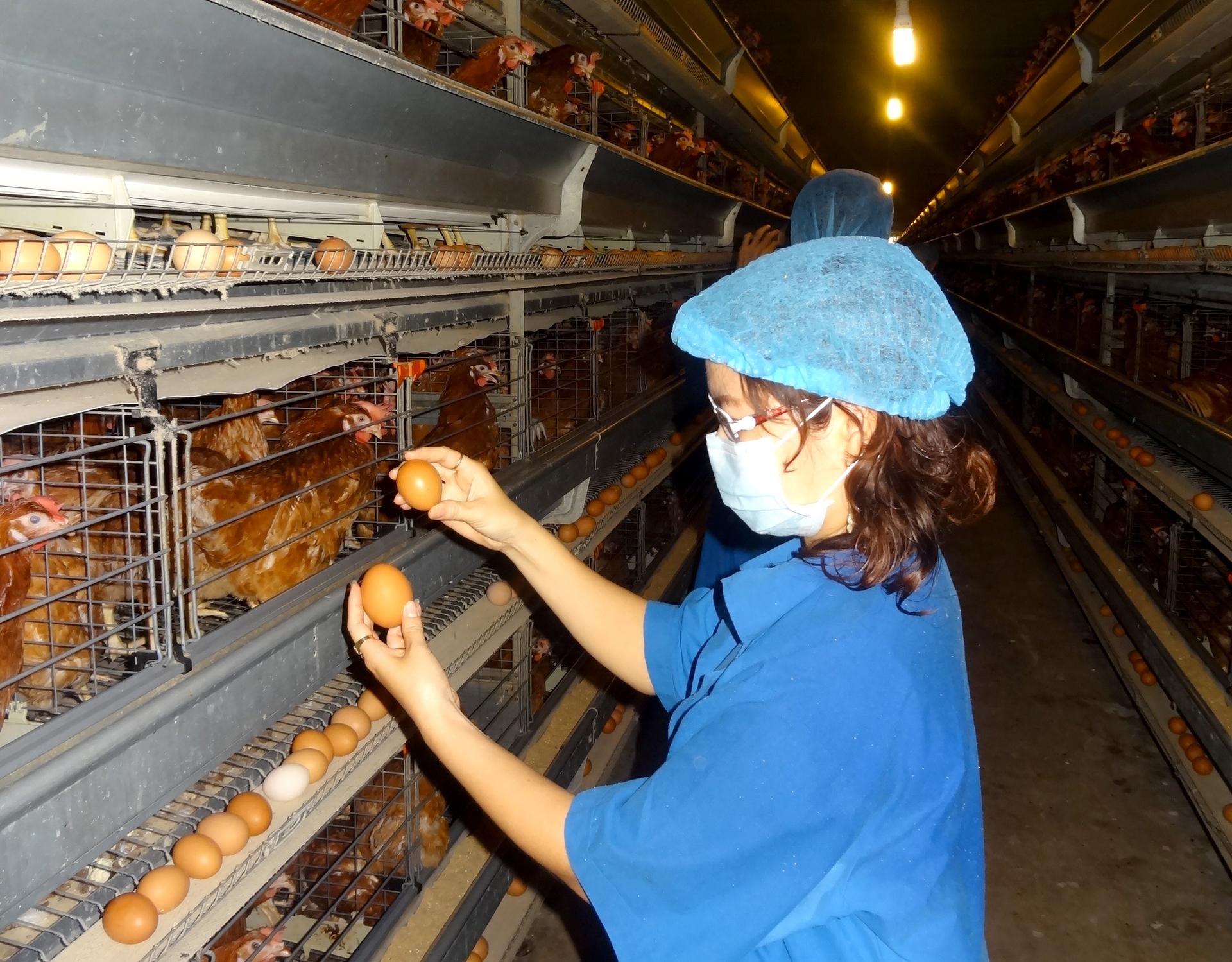November 25, 2025 | 02:57 GMT +7
November 25, 2025 | 02:57 GMT +7
Hotline: 0913.378.918
November 25, 2025 | 02:57 GMT +7
Hotline: 0913.378.918

A farm specializing in the production of poultry eggs in Binh Phuoc. Photo: Son Trang.
Food and Environmental Hygiene Department of Hong Kong sent a letter to Vietnam's Department of Animal Health on July 31, 2023, informing the removal of import bans on poultry eggs and poultry egg products from the provinces of Binh Duong, Binh Phuoc, and Dong Nai. This is a great effort process in exchanging and negotiating in veterinary and supplying documents on the results of avian flu prevention and combat in Vietnam.
The avian flu has been effectively contained on a national scale. As of the start of this year, the country has 14 minor and fragmented epidemic centers, which have necessitated the destruction of approximately 18,000 poultry heads, a decrease of 70% from the previous year. In particular, the Southeast region did not report any cases of avian flu.
The Department of Animal Health and localities have effectively implemented the National Plan for the Prevention and Control of avian influenza; collaborated with international organizations to proactively monitor, warn, and respond to avian influenza; accelerated the construction of areas and facilities free of poultry diseases; organized information and disseminated solutions for preventing and controlling poultry diseases; and proactively and promptly responded to avian influenza outbreaks.
By July 2023, Hong Kong will have lifted the prohibition and permitted the import of eggs and poultry egg products from Tay Ninh, Binh Duong, Binh Phuoc, and Dong Nai. These provinces' businesses, farms, and breeders are now permitted to export eggs and egg products to Hong Kong. The Department of Animal Health must inspect export shipments and issue an Export Quarantine Certificate in accordance with the form and content agreed upon with the Hong Kong side.
To promote the export of poultry, poultry products in particular, and animals and animal products in general, localities and businesses must pay more attention, focus, cooperation, and support to organize construction of epidemic-free areas and facilities, proactively monitor, warn, and respond to epidemics, as directed by the Prime Minister (in Decision No. 172/QD-TTg dated February 13, 2019, and Official Dispatch No. 426/CD-TTg dated May 18, 2018).
Translated by Linh Linh

(VAN) An Giang promotes supply-demand connections, standardizes quality and builds value chains, creating a foundation for sustainable bird’s nest development and aiming to expand exports.
/2025/11/24/5339-4-nongnghiep-075331.jpg)
(VAN) Recently, the conference on 'Sustainable Fisheries Linkage Chain - Tilapia for Export' took place in Tien Hai commune, Hung Yen province.
/2025/11/21/4309-2-153400_128.jpg)
(VAN) Green and low-emission rice is paving the way for Vietnamese rice to enter high-end markets, marking the beginning of a transformation journey toward greening and elevating the national rice brand.

(VAN) ‘Right to Win’ outlines a national action plan that shapes a new vision for Viet Nam’s agriculture in an era of renewal and global integration.

(VAN) Lam Dong’s farmed sturgeon output this year is expected to reach 2,300 tons, worth VND 450 billion, affirming the brand’s position on the market.

(VAN) A surge in Ukrainian egg exports, largely driven by soaring sales to the UK over the last few years, has notably pushed up egg prices on the domestic market.

(VAN) The price of Arabica Catimor coffee in Quang Tri is currently at VND 25,000–27,000/kg (fresh cherries), the highest level ever recorded